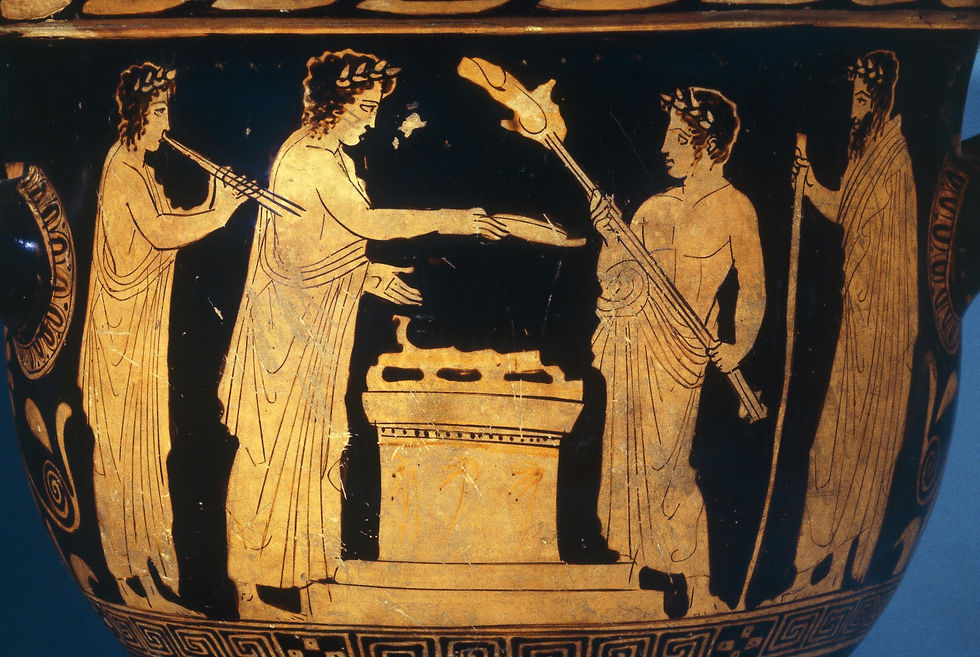The Torchbearer
- jocogan1

- Aug 20, 2025
- 3 min read
Updated: Sep 10, 2025
Like runners, they pass on the torch of life - Lucretius II.77
et quasi cursores vitai lampada tradunt
There was a contest in Athens which involved teams of young men racing through the streets with blazing torches; it took the form of a relay, handing on the flame from one to another, and the winners were rewarded by lighting the fire for the great sacrifice to the goddess Athene high on the Acropolis.
This torch-bearing race, the lampadephoria, wasn't a part of the competitive athletic games that also featured in the Great Panathenaea festival. It was a separate event, with different symbolism.
The metaphor of passing on the torch can be applied to any sort of handing-on of knowledge, skills or important tasks, but is particularly fitting as an analogy to teaching - and, considering its history, particularly to the teaching of Classics.

Torch-bearing races were held around Greece in honour of different gods, bringing light and warmth, lighting the fire for the important sacrifices. The ritual inspired the modern Olympic tradition of the torch relay, which still today starts with the lighting of the torch at Olympia. Elsewhere, Herodotus VIII.98 compares the speed and efficiency of the Persian courier system to the torch race in honour of Hephaestus; we get the impression they took it very seriously. So the torch race was seemingly widely practised, and it wasn't about competition.

It was a physical symbol, a blazing metaphor. It involved the passing of the torch from one hand to the next, each carefully keeping it aflame; it honoured the community, working together, and the deities who protected it. An additional symbolism of the torch is intellectual enlightenment, helping us to see and understand the world clearly. Athene and Hephaestus presided over the useful and ornamental aspects of fire, the arts and crafts that speak to the practical and the beautiful, the physical and the intellectual.
The first female professor of Ancient Greek in the UK, Dorothy Tarrant, gave a speech to the Classical Association in 1958 entitled "The Long Line of Torchbearers." Her speech was on the topic of Classical Reception and translation, but the title encapsulates what those who teach, and are passionate about it, do. We bear the torch that can bring illumination, we share it in our community, and we pass it on to the next generation.
The line of which I am a part, and which I want to extend to the next generation, started millenia ago. My own chain of hands goes back to my Oxford tutors, my dedicated school teachers at my provincial girls' school, and the remarkably generous teachers at my otherwise undistinguished primary school.
To return to the quote from Lucretius at the start of this post, et quasi cursores vitai lampada tradunt, this will be familiar to many from Henry Newbolt's famous poem Vitai Lampada. Newbolt uses the metaphor of a game of cricket to celebrate the virtues of camaraderie and courage. Written in 1892 it speaks to a very different worldview from ours, but the metaphor of passing on the torch remains a powerful one. Here I'd like to pass on the torch that blazes for Classics, that brings illumination and unites a community that shares a love of the ancient world; in Newbolt's words, "This they all with a joyful mind / Bear through life like a torch in flame." I'd like to pass on the torch, and see it illuminate the long and ever-extending line of students waiting to receive it and run with it.


Comments